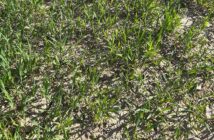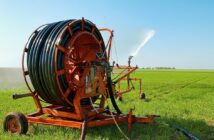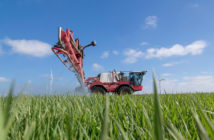A qualification, akin to that for sprayer operators, is needed to promote standards and best practice when seed treatments are applied on farm, says Paul Taylor who chairs the Agricultural Industry Confederation’s Seed Sector.
Speaking at the annual AIC Seed Trade Dinner, Mr Taylor spoke of the benefits of seed treatment and the work which has been done to introduce standards through the seed treatment supply chain and which must now see the logical extension onto farm to cover seed sowing.
“Seed treatments offer a huge environmental advantage and the industry should become far stronger advocates of the technology.
Despite the real benefits which seed treatments give in terms of placement and active ingredient usage, on-going regulatory review is seeing treatment options being reduced.
“Two single purpose treatments have been lost and a third may be restricted,” said Mr Taylor.
“Everyone involved in the supply, treatment and use of seed needs to be operating to the highest standards, as set by the European Seed Treatment Association (ESTA) scheme which has been developed in the UK to fit within TASCC. The inspection requirements of Sustainable Use Directive now apply also to equipment used to apply seed treatments; the BASIS accreditation for seed sellers has been in existence for some time, although AIC would now like to see it being reviewed and updated; mobile seed processors are working to bring their own standards in line with ESTA. But for the on-farm use and sowing of seed there is nothing which could be seen as being equivalent to the National Register of Sprayer Operators for those using treated seed,” said Mr Taylor, “and that weakness is something which must be addressed for the industry to be able to show a comprehensive approach to best practice and stewardship of these important and safe tools.”




